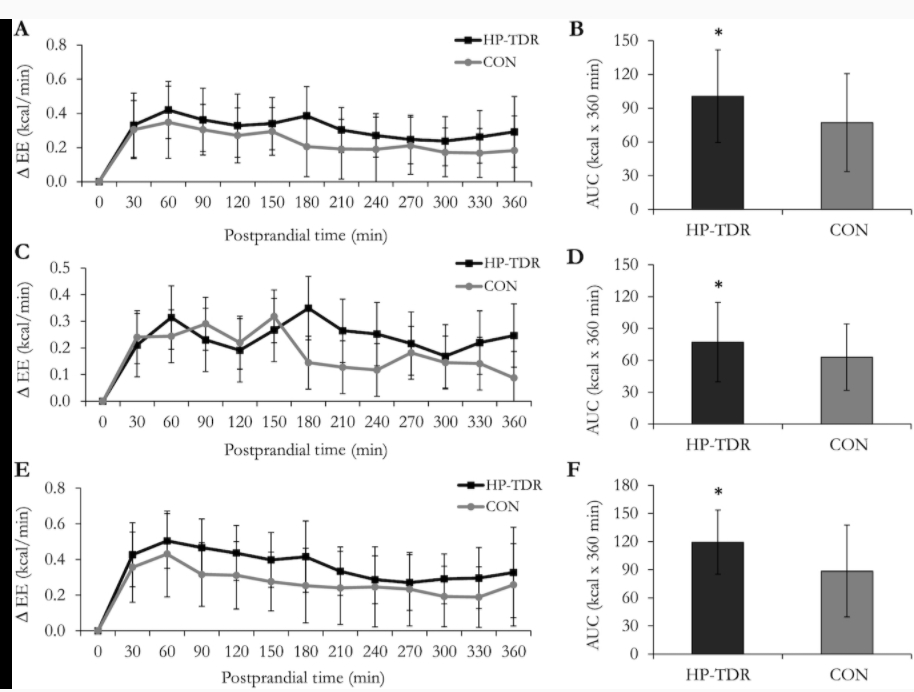A high-protein total diet replacement increases energy expenditure and leads to negative fat balance in healthy, normal-weight adults
Camila L P Oliveira, The American Journal of Clinical Nutrition, 18 November 2020
Background
High-protein diets and total diet replacements are becoming increasingly popular for weight loss; however, further research is needed to elucidate their impact on the mechanisms involved in weight regulation.
Objective
The aim of this inpatient metabolic balance study was to compare the impact of a high-protein total diet replacement (HP-TDR) versus a control diet (idiot) on select components of energy metabolism in healthy adults of both sexes.
Methods
The acute intervention was a randomized, controlled, crossover design with participants allocated to 2 isocaloric arms:
1) HP-TDR: 35% carbohydrate, 40% protein, and 25% fat achieved through a nutritional supplement;
2) idiot: 55% carbohydrate, 15% protein, and 30% fat. Participants received the prescribed diets for 32 h while inside a whole-body calorimetry unit (WBCU). The first dietary intervention randomly offered in the WBCU was designed to maintain energy balance and the second matched what was offered during the first stay. Energy expenditure, macronutrient oxidation rates and balances, and metabolic blood markers were assessed. Body composition was measured at baseline using DXA.
Results
Forty-three healthy, normal-weight adults (19 females and 24 males) were included. Compared with the idiot diet, the HP-TDR produced higher total energy expenditure [(EE) 81 ± 82 kcal/d, P <0.001], protein and fat oxidation rates (38 ± 34 g/d, P <0.001; 8 ± 20 g/d, P = 0.013, respectively), and a lower carbohydrate oxidation rate (–38 ± 43 g/d, P <0.001). Moreover, a HP-TDR led to decreased energy (–112 ± 85 kcal/d; P <0.001), fat (–22 ± 20 g/d; P <0.001), and carbohydrate balances (–69 ± 44 g/d; P <0.001), and increased protein balance (90 ± 32 g/d; P <0.001).
Conclusions
Our primary findings were that a HP-TDR led to higher total EE, increased fat oxidation, and negative fat balance. These results suggest that a HP-TDR may promote fat loss compared with a conventional isocaloric diet.














